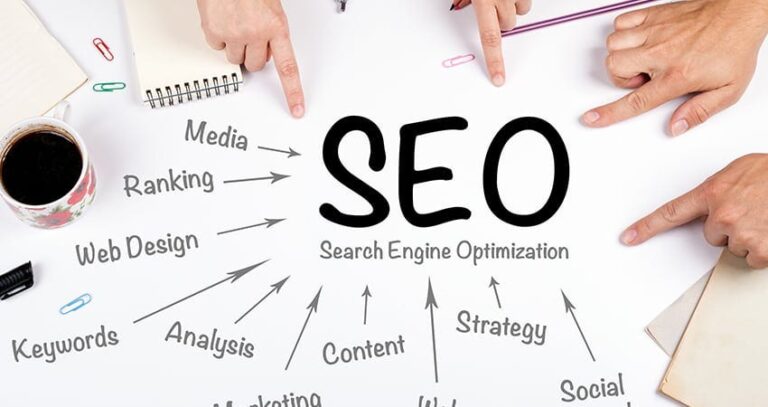
Introduction
The digital marketing world is undergoing a massive transformation, and Artificial Intelligence (AI) is at the core of it. From personalized customer experiences to advanced data analytics, AI in modern digital marketing is no longer a luxury—it’s a necessity. Brands that leverage AI-driven tools and strategies are seeing higher conversion rates, better ROI, and more efficient operations.
In this article, we explore the role of AI in modern digital marketing, the tools making it possible, and how businesses can stay ahead of the curve.
1. Personalization at Scale
AI allows businesses to deliver hyper-personalized experiences based on user behavior, preferences, and interactions.
Examples:
-
Netflix uses AI to recommend content.
-
Amazon customizes product suggestions based on browsing and purchase history.
-
Email campaigns can be tailored in real time with personalized subject lines, product recommendations, and send times.
AI in modern digital marketing enables brands to segment audiences with precision, ensuring relevant messaging that increases engagement.
2. Smarter Content Creation
AI-powered content tools are revolutionizing how marketers generate and distribute content.
Popular AI Content Tools:
-
ChatGPT for generating blog posts, product descriptions, and email copy.
-
Jasper.ai for marketing content and ad copy.
-
Surfer SEO for keyword-optimized writing.
With these tools, marketers save time, reduce costs, and maintain a consistent content calendar. AI helps create content tailored to user intent, enhancing SEO and user satisfaction.
3. Predictive Analytics and Consumer Insights
AI can process massive amounts of data to predict future trends and consumer behavior.
Benefits:
-
Forecast sales and customer demand
-
Identify at-risk customers likely to churn
-
Spot high-value leads for sales targeting
AI-driven tools like Google Analytics 4, HubSpot, and Salesforce Einstein provide actionable insights that shape smarter marketing strategies. This is how AI in modern digital marketing turns raw data into strategic gold.
4. Enhanced Customer Service with Chatbots
AI-powered chatbots handle customer service queries 24/7, offering instant responses and gathering data from interactions.
Advantages of AI Chatbots:
-
Lower support costs
-
Instant issue resolution
-
Better user experience
Tools like Drift, Intercom, and Tidio integrate AI to guide customers through sales funnels, answer FAQs, and even qualify leads. As AI language models improve, chatbots are becoming indistinguishable from human agents. You can also check, Digital marketing.
5. Automated Advertising
AI simplifies and optimizes digital ad campaigns across platforms like Google Ads, Facebook Ads, and LinkedIn.
AI Advertising Features:
-
Smart bidding strategies
-
Real-time budget adjustments
-
Ad performance prediction
-
Dynamic ad creation based on user behavior
Marketers can now launch high-performing ad campaigns with minimal manual input. AI ensures that ads reach the right people, at the right time, with the right message.
6. Voice Search and Conversational AI
Voice search is on the rise, and AI is behind the scenes making it smarter.
AI Voice Tech Examples:
-
Google Assistant
-
Amazon Alexa
-
Apple Siri
Optimizing for voice search requires understanding natural language queries, which AI tools can analyze and implement. Conversational AI also powers voice assistants, helping brands develop voice-friendly content strategies.
7. AI-Powered Visual Recognition
AI now interprets images and videos, adding a new dimension to visual content marketing.
Use Cases:
-
Pinterest Lens lets users search using images.
-
Facebook uses image recognition to tag friends and recommend content.
-
E-commerce stores use AI for virtual try-ons and image-based product search.
This enhances UX and shortens the customer journey, especially in visual-heavy industries like fashion, home decor, and beauty.
8. AI in Email Marketing
Email remains one of the highest-ROI channels, and AI has made it smarter than ever.
AI Capabilities in Email:
-
Predicting the best time to send emails
-
Crafting subject lines that boost open rates
-
Automating content based on user interaction
Platforms like Mailchimp, Klaviyo, and ActiveCampaign use AI to personalize and optimize every part of the email funnel.
9. SEO and AI: A Powerful Duo
SEO is no longer guesswork. AI tools now assist marketers in optimizing websites, content, and backlinks.
Popular AI SEO Tools:
-
Semrush for keyword tracking and competitive insights
-
Surfer SEO for content optimization
-
MarketMuse for topic authority and content planning
AI crawls, analyzes, and suggests improvements for better ranking—making it a critical tool in modern SEO strategies.
10. Fraud Detection and Cybersecurity
Digital marketing involves sensitive data, and AI helps keep that data safe.
AI Security Benefits:
-
Detect fraudulent clicks in PPC campaigns
-
Monitor suspicious activity in real time
-
Prevent data breaches with intelligent firewall systems
Brands that adopt AI-based security measures gain both user trust and operational resilience.
Conclusion
From automating tasks to delivering real-time personalization and insights, AI in modern digital marketing is transforming the industry. It’s not just about adopting new tools—it’s about rethinking strategies, workflows, and customer journeys. Businesses that integrate AI effectively gain a massive competitive advantage.



